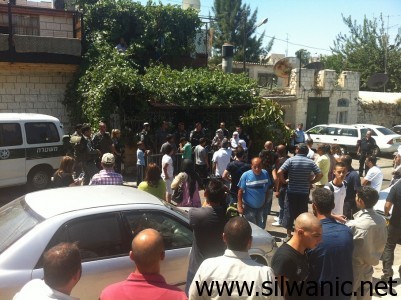Category: In the Media
-
What YOU can do as an International to help people in Palestine
17th November 2012 | Palestine via http://qumsiyeh.org WHAT YOU CAN DO Before we address what can be done, we need to ask what Palestinians want from the International Community and what are some goals to adopt for your group to help achieve that. The Palestinian Civil Society Call to action is the best articulation of…
-
Take Action: Verdict in Corrie Case Requires U.S. Investigation
September 19 2012 | US Campaign to End the Occupation Urge the U.S. Government to Investigate Israel’s Attacks on Rachel and Others Rachel Corrie Rachel Corrie was a U.S. citizen and a human rights defender committed to ending Israel’s illegal demolition of Palestinian homes. According to the Israeli Committee against House Demolitions,Israel has demolished an estimated 27,000…
-
Family home raided in Silwan after settler attack on children
By SILWANIC 28 August, 2012 | SILWANIC, Silwan, Jerusalem Israeli forces raided a Palestinian family home in Silwan on Saturday, 18 September. The Karki family were accused by armed forces of attacking nearby Israeli settlers. Ahmad Siyam told Silwanic that a group of Palestinian children playing in the street were in fact attacked by settlers,…

